20180925-akj-mw25-collection-001
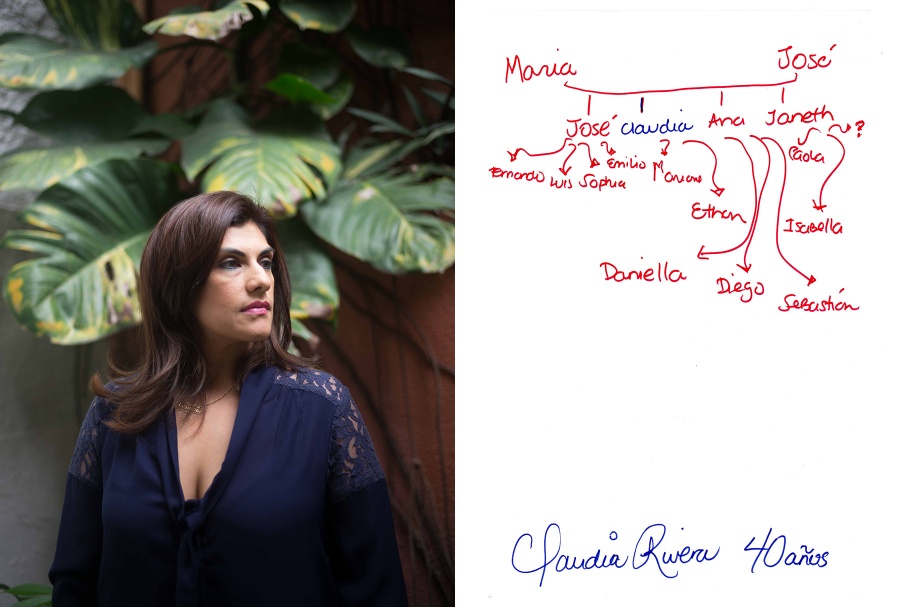
Claudia Rivera, 40 years old, is a doctor. Her family immigrated to the United States in 1983 when she was seven years old to escape the civil war. After living for many years in the United States, she decided to return to El Salvador. A hand-drawn family tree includes family members’ names written in red for those living in the United States and in blue for those living in El Salvador.
San Salvador, El Salvador, September 2017.
20180925-akj-mw25-collection-002
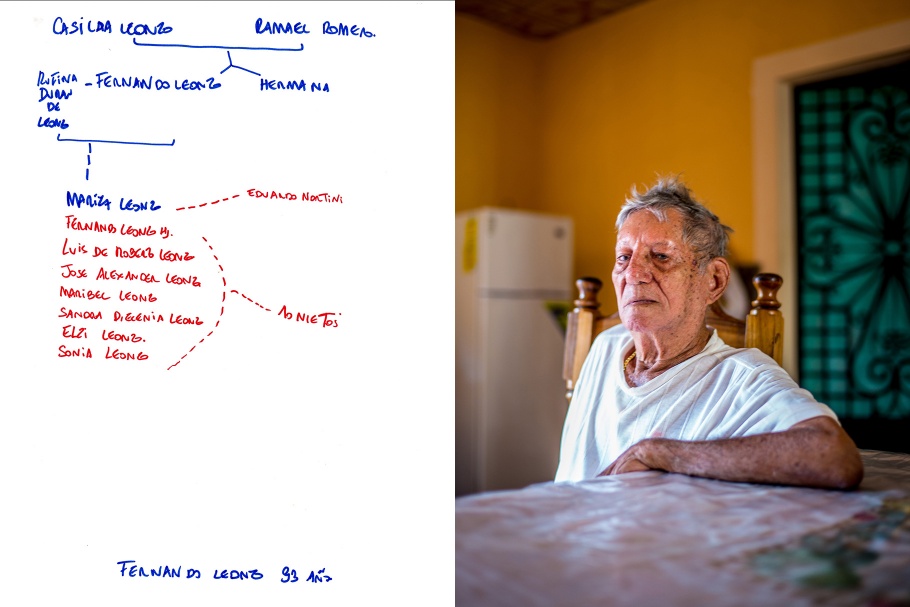
Fernando, 93 years old, returned to Intipucá after a long life in the United States. Today, all of his children except for one daughter are working there legally. A hand-drawn family tree includes family members’ names written in red for those living in the United States and in blue for those living in El Salvador.
Intipucá, El Salvador, September 2017.
20180925-akj-mw25-collection-003
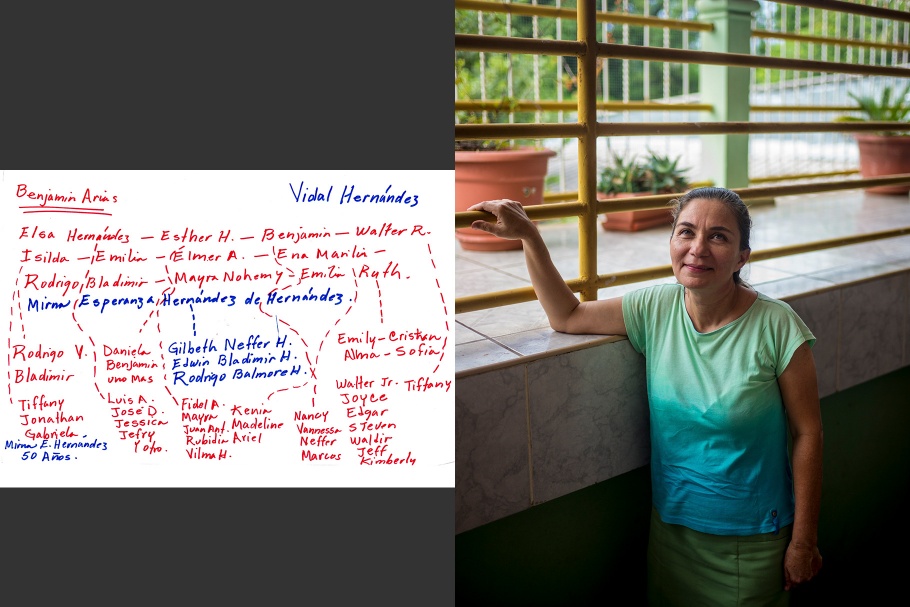
Mirna Hernández, 50 years old, is the only one of 12 siblings who lives in Intipucá. Almost all her family is in the United States. A hand-drawn family tree includes family members’ names written in red for those living in the United States and in blue for those living in El Salvador.
Intipucá, El Salvador, September 2017.
20180925-akj-mw25-collection-004
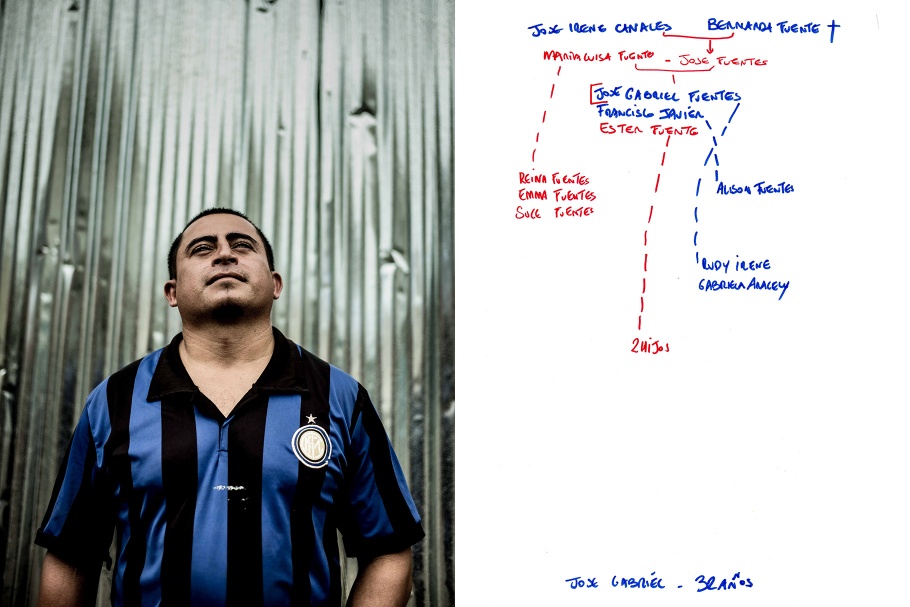
José Gabriel, 32 years old, spent three-and-a-half years in the United States. “At three-and-a-half years, the police grabbed me. They told me that I was wanted, that I was a fugitive from justice, they were looking for me in order to deport me.” He was deported and returned to El Salvador. A hand drawn family tree includes family members’ names written in red for those living in the United States and in blue for those living in El Salvador.
Intipucá, El Salvador, September 2017.
20180925-akj-mw25-collection-005
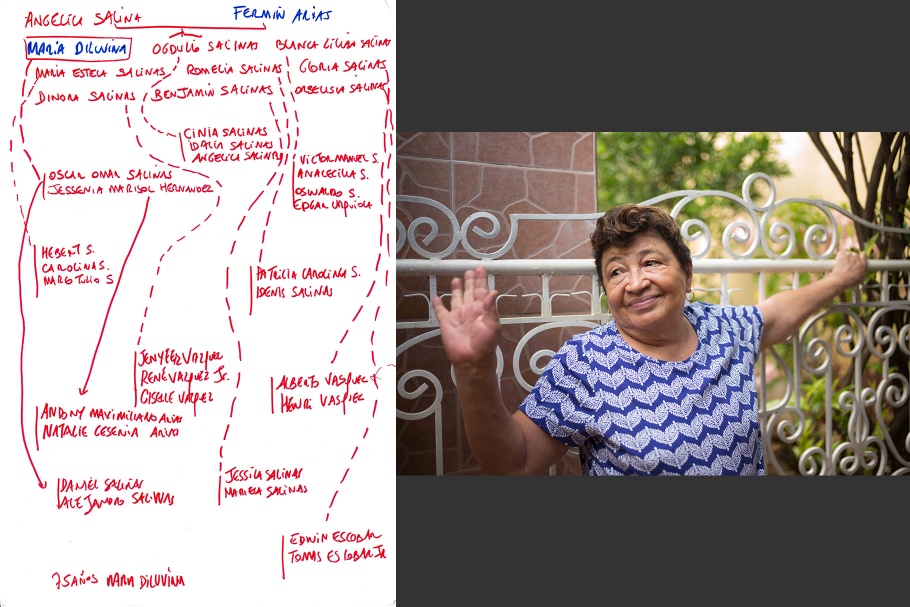
Maria Diluvina, 75 years old, had lived all her life in the United States. She decided to return to El Salvador to retire when her last daughter left the house. Her entire family stayed in the United States. A hand-drawn family tree includes family members’ names written in red for those living in the United States and in blue for those living in El Salvador.
Intipucá, El Salvador, September 2017.
20180925-akj-mw25-collection-006
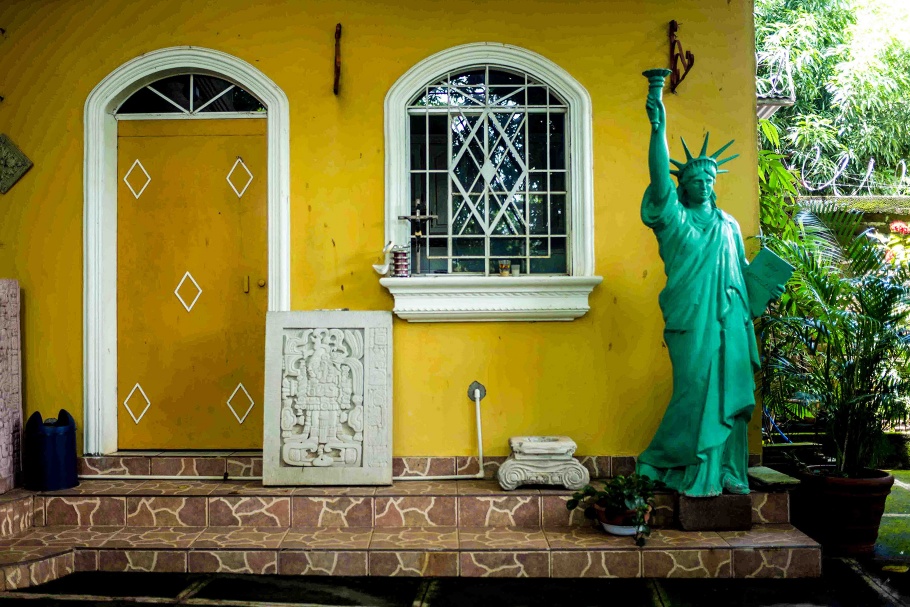
A miniature replica of the Statue of Liberty stands in the garden of a house belonging to a family who once lived in the United States and returned to El Salvador to retire: a symbol of the transnational and transcultural identity carried by some Salvadorans in Intipucá after living many years abroad.
Intipucá, El Salvador, September 2017.
20180925-akj-mw25-collection-007
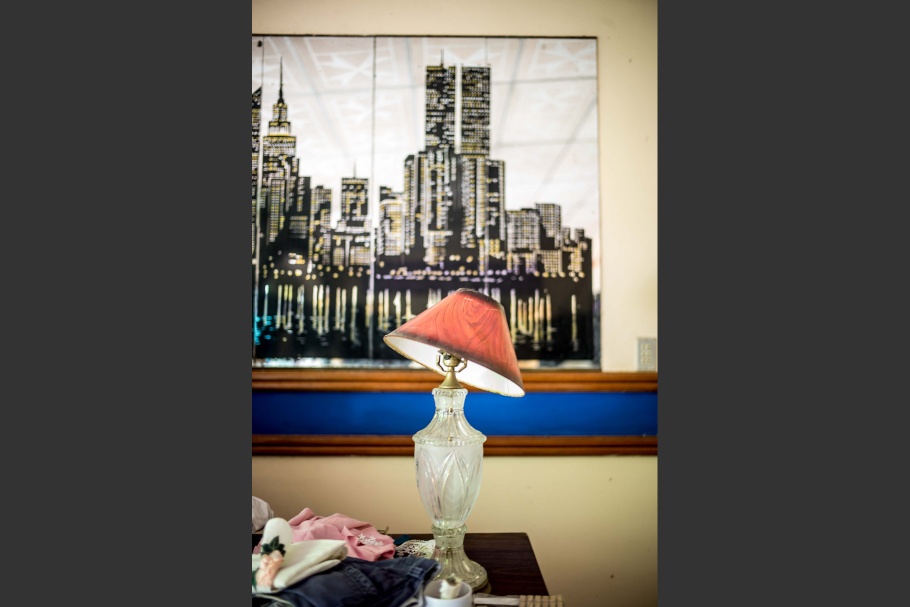
A view of New York City on an image displayed inside a home in Intipucá.
Intipucá, El Salvador, September 2017.
20180925-akj-mw25-collection-008
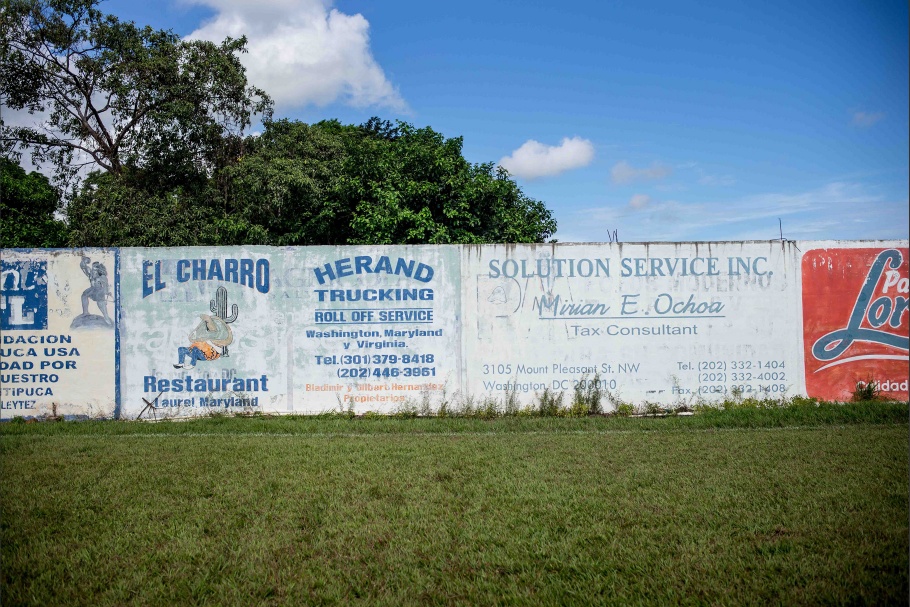
Advertising is seen on the walls of the local stadium for shops and businesses of Intipuqueños living in the United States. The stadium was funded by these Intipuqueños.
Intipucá, El Salvador, September 2017.
20180925-akj-mw25-collection-009
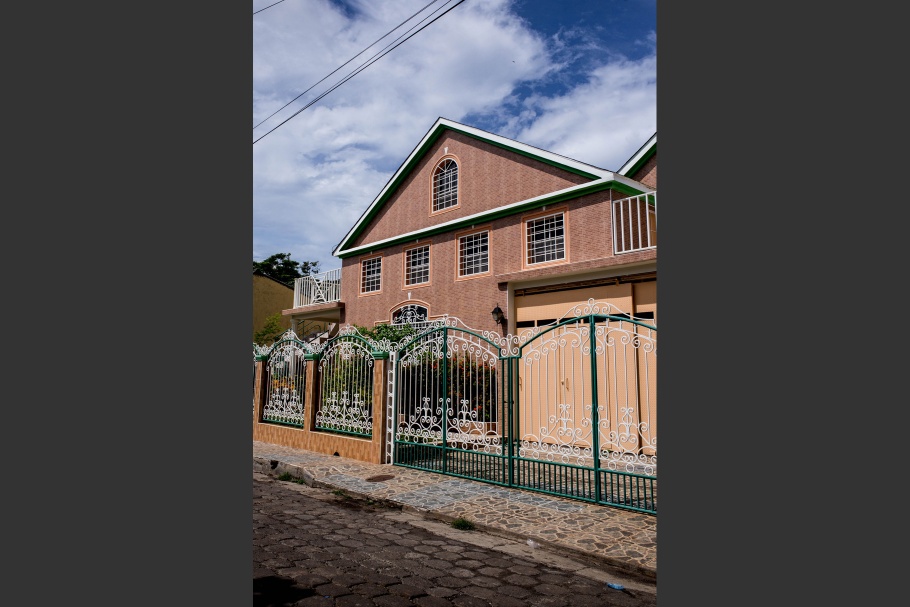
Many people living in the United States are changing the traditional architectural style in Intipucá by building or renovating American-style houses. Most of these houses remain empty for a large part of the year.
Intipucá, El Salvador, September 2017.
Jessica Ávalos (b. 1985; born and lives in El Salvador) is a journalist whose writing focuses on access to justice, human rights, and victims of violence, and whose goal is to develop a practice of constructive journalism.
Ávalos received a fellowship from the Columbia University School of Journalism (2017) to study investigative reporting, a grant from the Fundación Nuevo Periodismo Iberoamericano (2009), and a grant for work in Mexico from the International Women’s Media Foundation (2016). She has a degree in Social Communication from Central American University in El Salvador.
Koral Carballo (b. 1987; born and lives in Mexico) is a visual storyteller who explores themes of identity, violence, and territory. She received first place at the Latin American Colloquium of Photography Portfolio Review organized by Foto Museo Cuatro Caminos (2017), the National Fund for Culture and the Arts Young Creators Grant (2015 and 2018), and the International Women’s Media Foundation Adelante fellowship and grant (2017 and 2018).
Carballo’s work has been exhibited in Argentina, Brazil, China, Mexico, Spain, Switzerland, and the United States. Carballo founded and organized the Mirar Distinto documentary photography and photojournalism festival in Mexico (2014) and is a member of the Trasluz collective.
Anita Pouchard Serra (b. 1985, France; lives in Argentina) is a photographer and former architect and anthropologist based in Buenos Aires and Paris. Her work focuses on contemporary social issues that are relevant to her personally, such as identity, migration, empowerment, and territory. Her approach is transdisciplinary and engages experimental approaches to post-production and distribution.
Pouchard Serra is a recipient of the International Women’s Media Foundation Adelante Fellowship (2017) and a World Press Photo scholarship (2017) to study at the Pedro Meyer Foundation. Her work “Latent Urbanities” has been exhibited in the French National Library as part of the Bourse du Talent. She is represented by Studio Hans Lucas.
Jessica Ávalos, Koral Carballo, and Anita Pouchard Serra
Intipucá is neither here nor there: it exists as both at once. Migration to the United States has been a tradition in Intipucá since 1968. As a result of shifts in international migration policy over the years and the circular nature of migration between Central America and the United States, the structure of families in Intipucá has taken on a transnational identity. The United States has become something close and present, despite being geographically distant.
Traditional architecture in Intipucá can scarcely be seen among newly constructed palaces made possible by remittances from North America. Photographs of these houses and their interiors serve as portraits of both absence and aspiration, representing family members who have left and the material influence of the United States.
By combining this documentation of domestic spaces with portraits, interviews, and hand-written family trees drawn by Intipuqueños (names written in red for those living in the United States, and blue for those living in Intipucá), we encourage viewers to reflect on the drivers and consequences of migration for individuals and their families.
—Jessica Ávalos, Koral Carballo, and Anita Pouchard Serra; September 2018